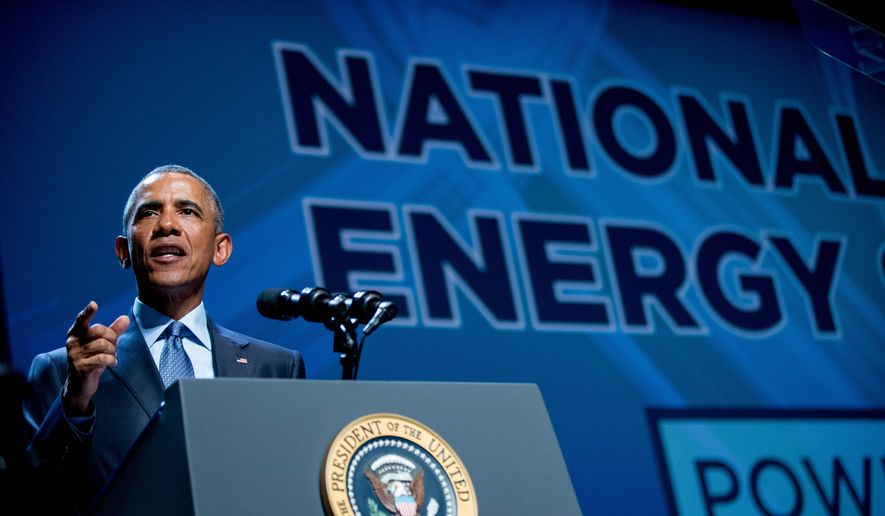The battle over the Obama administration’s Clean Power Plan heated up Monday as pro-business groups staked out their case against the newly published rule that mandates a massive reduction in carbon emissions in the next 15 years, arguing that it will jack up energy costs and slash jobs without making a dent in greenhouse gases.
The U.S. Chamber of Commerce and 14 other business groups filed a lawsuit against the Environmental Protection Agency Friday, the day the rule was published, and followed up Monday with a press call with the National Association of Manufacturers and National Federation of Independent Business.
The business challenge parallels the lawsuit filed Friday by 24 states, represented primarily by attorneys general, who argue that the EPA has overstepped its authority by attempting a takeover of state power plants.
“The chamber is focused on standing up for consumers, families and businesses that are facing immediate job losses and higher electricity rates as a result of the EPA rule,” said Matt Letourneau, spokesman for the chamber’s Institute for 21st Century Energy.
The EPA cites it authority under the Clean Air Act in promulgating the rule, which requires a 32 percent reduction in carbon emissions below 2005 levels by 2030.
Meanwhile, the pro-Obama group Americans United for Change released a digital ad campaign in favor of the Clean Power Plan, arguing that the 24 attorneys general have accepted $2.4 million in campaign contribution from the “Dirty Energy Sector.”
SEE ALSO: Two dozen states file lawsuit against ‘Clean Power Plan’
“[R]epublican attorneys general are bowing to their dirty energy and big-oil benefactors, and they’re suing the EPA to take those health and economic benefits away from hard-working Americans,” says the ad. “Tell these partisan attorneys general to stop putting polluters over people.” The group’s definition of “dirty energy” includes electric utilities, coal mining, mining services and equipment, non-metallic mining, and oil and gas, according to its website.
While most of the attorneys general filing the lawsuit are Republican, the exception is Missouri’s Chris Koster, who is a Democrat. In Kentucky, which has a Democratic attorney general, the lawsuit was joined by the Commonwealth of Kentucky; in North Carolina, where the attorney general is also a Democrat, the lawsuit was joined by the state Department of Environmental Quality.
The business lawsuit, which seeks a hold on the rule’s implementation pending the legal challenge, argues that the Clean Power Plan exceeds the EPA’s authority to regulate the state-based energy sector.
“The seismic change to the power industry — and the national economy — required by the Rule presents the type of extraordinary circumstances that warrant a stay,” the lawsuit says. “The Rule requires a fundamental restructuring of the power sector, compelling States, utilities, and suppliers to adopt EPA’s preferred sources of power and fuel and to redesign their electricity infrastructure in the process.”
“Never before in the CAA’s history have the States and industry been ordered to do so much in so little time,” the lawsuit continues.
The Clean Power Plan represents the most significant piece in the Obama administration’s effort to combat climate change by reducing greenhouse gas emissions.
SEE ALSO: White House blasts GOP opponents of ‘Clean Power Plan’
Foes argue that the rule would effectively shut down coal-fired power plants, which provide inexpensive and reliable electricity but cannot reduce their emissions to the required levels using current technology.
“Coal mines associated with the shuttered plants will have to reduce operations or close entirely, laying off numerous employees in the process,” the lawsuit says. “Thousands of businesses providing support services to coal-fired plants and coal mines will see their customer base shrivel; many will have to lay off workers and face the prospect of closing their doors.”
• Valerie Richardson can be reached at vrichardson@washingtontimes.com.




Please read our comment policy before commenting.